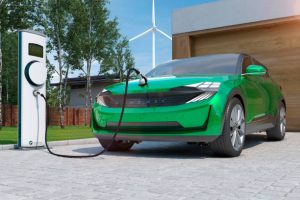Introduction
Green car technology is transforming our minds in regard to cars, movement and our earth. Vehicles are regarded as a source of pollution over the years and nowadays, vehicles are becoming an instrument of a cleaner world through innovation. It is not a technological transformation only, but a hope, responsibility and dream of having a chance to drive without damaging our environment.
What Is Sustainable Automotive Technology?
Sustainable automotive technology is defined as the technology that aims to minimize the environmental effects of vehicles. It is concerned with green energy, efficiency, and environmentally friendly materials.
Rather than using the old fashioned fossil fuels, this technology encourages the use of electric vehicles (EVs), hybrid engines, hydrogen fuel cells and even solar-powered systems.
The objective is not complicated – to ensure that transportation is clean and green and yet offer comfort, performance and affordability to global drivers.
The Change to a Green Future

All the big car manufacturing companies are today scrambling towards being green. Such companies as Tesla, Toyota and BMW are putting billions on electric and hybrid models. Governments are giving incentives to individuals who adopt cars, which are friendly to the environment. Charges stations are becoming urbanized.
This is not a trend only but a movement. Human beings are finding out that the future of mobility is in the protection of our planet. The decision on sustainable automotive technology does not only involve buying a car but being involved in a global solution.
Practical Cases of Innovation
Tesla -At the head of the Electric Revolution
Tesla has turned out to be the icon of eco-friendly automotive technology. They have transformed the stylish and practical eco-friendly driving with its long-range electric cars, fast-charging networks, and futuristic design. Its innovation has given other numerous brands the inspiration to imitate it.
Toyota Prius The Hybrid pioneer
Toyota Prius demonstrated that a hybrid technology may reduce emissions without compromising convenience before electric cars had become popular. The Prius is still a strong illustration of how one model can transform the perception of people regarding sustainable vehicles.
Hyundai Nexo -Hydrogen Power in Action
Cars powered by hydrogen fuel cells such as Hyundai Nexo do not produce carbon emissions. They have quick refueling times, and they have massive ranges and therefore is one of the most promising areas of sustainable automotive technology.
The Importance of Sustainable Cars
Gasoline and diesel cars emit millions of tons of carbon dioxide in the air annually. This and other pollution contribute to climate change, poor air quality and health issues across the globe.
Through the introduction of sustainable automotive technology, we will be able to cut down these emissions significantly. Hybrid and electric cars do not emit much or no exhaust. They are also more efficient and less requiring to maintain.
But this is not only concerning the environment but people. Healthy families, longer lifespans and a livable planet are the results of cleaner air to the future generation.
The Impact of Renewable energy
Renewable energy is accompanied by sustainable automotive technology. The electric cars run on solar or wind power will actually give a transportation system that is green. Numerous nations are pouring a lot of investment on renewable charging systems to bring this vision to life.
Imagine the use of the sun to charge your automobile at home. It is not only convenient – it is empowering. You enter into a better energy cycle that favors the planet and your pocket.
Overcoming Challenges
The challenges still exist despite the progress. Electric cars are also not independent of battery manufacturing, which may be non-resource-intensive. Infrastructure in rural locations is not charged, and certain consumers fear the expensive initial expenses.
Nevertheless, these issues are being resolved by doing constant research and innovation. Recycling of batteries, rapid charging, and low-cost electric vehicles are becoming available every year. The collaboration between governments and individual firms is aimed at ensuring all people have access to sustainable automotive technology.
The Human Side of Change

Ecosystems Switching to ecological cars is not simply a matter of technology, but a matter of attitude. There are numerous stories of how drivers chose to become green and their success stories are inspirational.
Consider Sarah who is a Californian teacher. She went to an electric car in order to minimize her carbon footprint. In the long run, she saved fuel and maintenance, but most importantly to her was the example that she was giving to her students. She would like her kids to grow up with clean air.
Examples such as that of Sarah demonstrate that sustainable technology in automobiles is no longer the prerogative of the wealthy or the technologically inclined. It is to anybody who is interested in making a difference.
Future of Sustainable Automotive Technology
More breakthroughs will be witnessed in the coming decade. Solar cars which recharge themselves, smarter batteries and materials which can be completely recycled are already undergoing trials. Artificial intelligence will assist cars to maximize the energy consumption, and autonomous driving will make transportation more efficient.
Cities are also evolving. Intelligent infrastructure will enable cars to communicate with roads, traffic lights and charging stations. This will bring ease, security, and sustainability in traveling at a level never experienced before.
How You Can Contribute

This is a change that does not require one to be an engineer or a scientist to support. You can start small:
- Your next car should be an electric or a hybrid car.
- Favor the support brands, which are sustainable in automotive technology.
- Promote others to use environmentally-friendly means of transport.
- Even such basic measures as carpooling or riding a bus can contribute to the decrease in pollution and energy wastage. Every effort matters.
Conclusion
Environmentally friendly car technology is not a hype. It is a potent change towards a more responsible, smarter and cleaner world. The cars of the future are being developed in the present – and it is up to us all to make that transformation happen.
With the evolution of innovation, there is one thing that is apparent, the future is green. The engines can be less noisy, but the message is more than ever, as sustainability is the future.












Add Comment